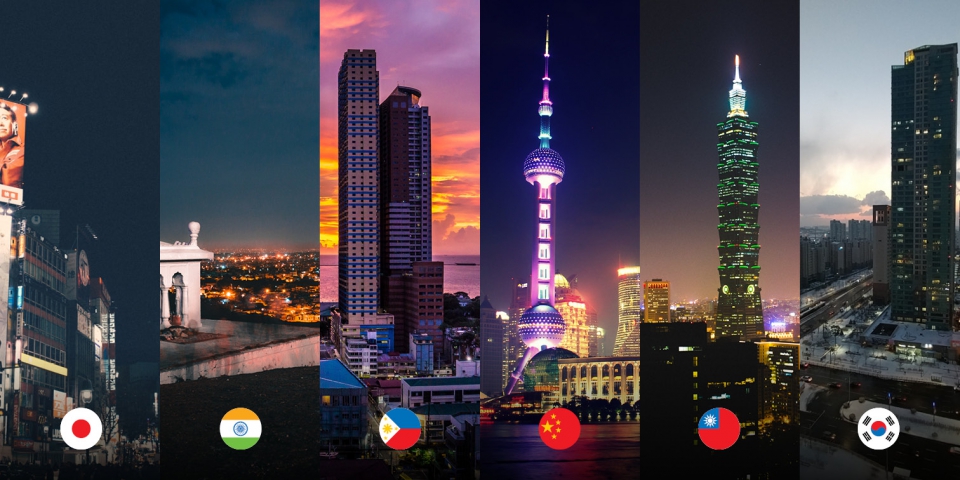In this part of our series on GNSS in Asia, we look at the opportunities for European companies within India’s Smart Cities Mission.
Launched in 2015 by the Indian government,  the Smart Cities Mission for Urban Development aims to transform 100 Indian cities into sustainable, safe and citizen-friendly environments. With a budget of USD 15 billion, GNSS applications will play a pivotal role in realising this vision, providing solutions for improving energy efficiency, waste management and urban mobility.
the Smart Cities Mission for Urban Development aims to transform 100 Indian cities into sustainable, safe and citizen-friendly environments. With a budget of USD 15 billion, GNSS applications will play a pivotal role in realising this vision, providing solutions for improving energy efficiency, waste management and urban mobility.
GNSS in India
As home to the world’s 10th largest economy, India has long-term ambitions to develop its capacity as a GNSS provider. Led by the India Space Research Organisation (ISRO), the entity responsible for the country’s GNSS activities and systems, India currently has two national systems:
- Indian Regional Navigational Satellite System (IRNSS): an autonomous regional satellite navigation system being developed by ISRO and under the control of the Indian government.
- GPS Aided GEO Augmented Navigation (GAGAN): an initiative working to establish SBAS over India. This is a joint programme between the Airports Authority of India and ISRO. The system is already operational.
Even with these systems, India lacks the applications and interest that one sees in, for example, Europe with EGNOS. “In India, we simply don’t have this level of awareness or the applications, in fact hardly any applications exist,” says Indian Industrial Relations Association (IIRA) Managing Director Varadarajan Krish. “This is where the opportunities for European companies are.”
Opportunities in Smart Cities
Although there are opportunities across all sectors, there is a significant gap in GNSS applications relating to the Smart Cities Mission and, in particular, the road and rail sectors. The ambitious Smart Cities Mission is a nation-wide urban renewal and retrofitting programme that aims to develop 100 cities into citizen-friendly and sustainable models.
According to Krish, GNSS will play a major role in realising these goals. “GNSS.asia has already created awareness about the technologies and best practice models available in Europe so that these smart cities can plug into them as and when the need arises,” he says. The GSA-funded GNSS.asia project is dedicated to developing and implementing GNSS industrial cooperation between European and Asia-Pacific GNSS industries, with a focus on the downstream market.
One component of these smart cities that is of particular interest to European companies is rail. With the Indian government having authorised direct foreign investment in India’s railways in 2013, there is now a unique chance for European rail companies to leverage their one-of-a-kind know-how. In fact, thanks in large part to the efforts of GNSS.asia, companies like Thales, GMV, Telit, ABB and Siemens have already succeeded in executing projects in India.
An ideal partner
What companies like Thales and GMV, among others, are finding out is that with India’s strong technology background, it makes for an ideal partner. “Whereas European companies can bring the experience and GNSS know-how, India can meet them halfway with the technology that is needed to power these applications,” says Krish.
To facilitate this partnership, Krish and the GNSS.asia India team bring delegates from EU companies to New Delhi for organisational meetings. As one of the main challenges facing EU companies looking to get a foothold in India is the complexity of working with the Indian government, GNSS.asia – India helps guide them through the necessary steps.
“Thanks to the relationships we have with many government agencies, GNSS.asia was recently able to help several large European companies fix meetings with the national Railway Board,” says Krish. As a result of this work, they have since successfully landed contracts and projects.”
But it’s not only large multinationals that are benefiting – any European company can take advantage of GNSS.asia’s services in India. “Big or small, every EU GNSS company should consider investing in India as there are many opportunities for GNSS, both in infrastructure under the Digital India campaign and in manufacturing under the Make it in India initiative,” says Krish.
Media note: This feature can be republished without charge provided the European GNSS Agency (GSA) is acknowledged as the source at the top or the bottom of the story. You must request permission before you use any of the photographs on the site. If you republish, we would be grateful if you could link back to the GSA website (http://www.gsa.europa.eu).